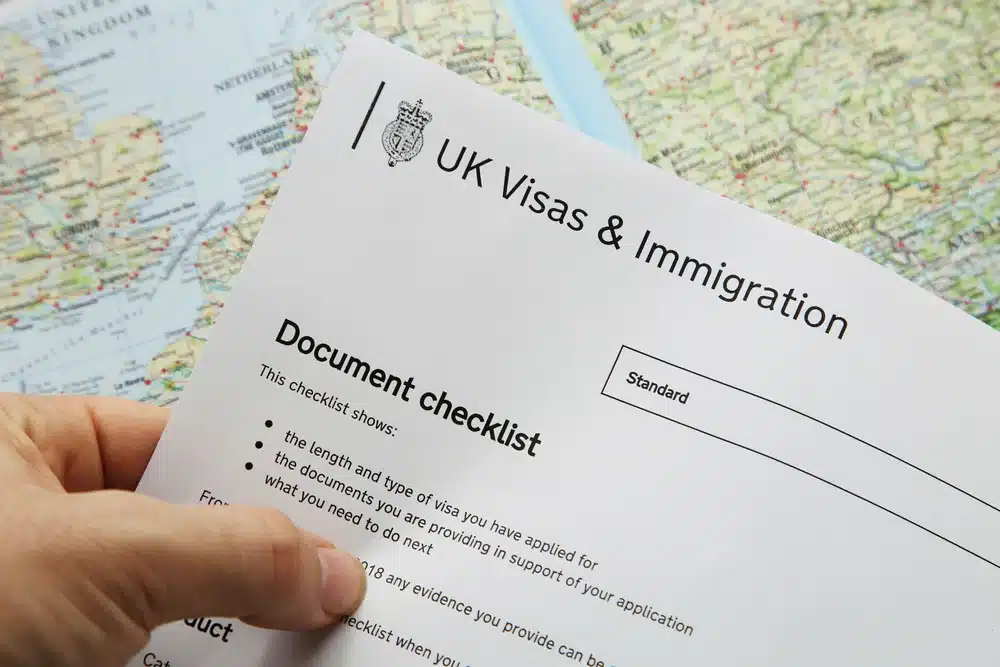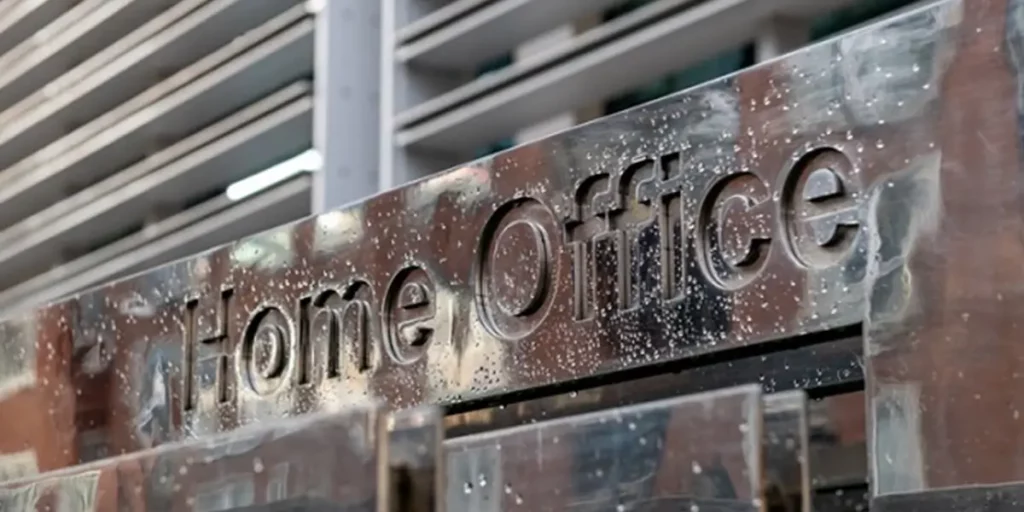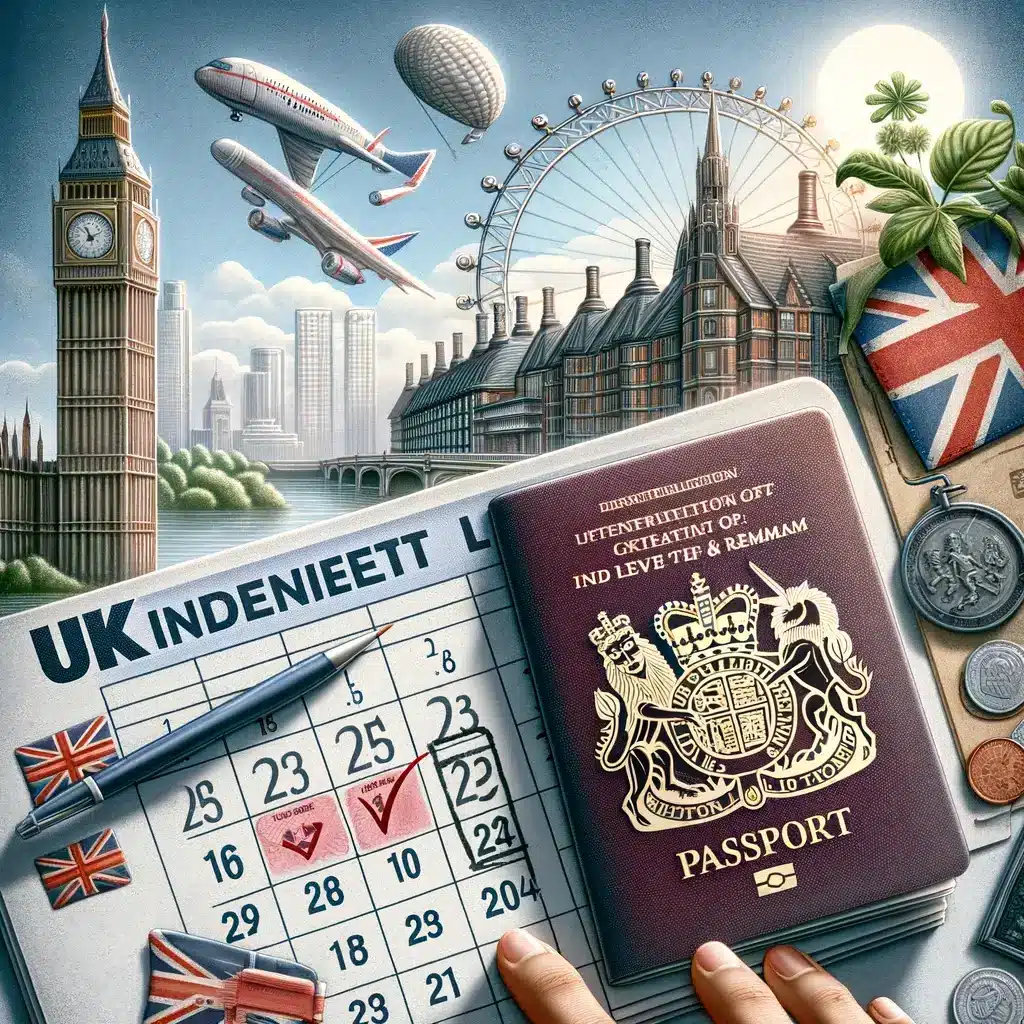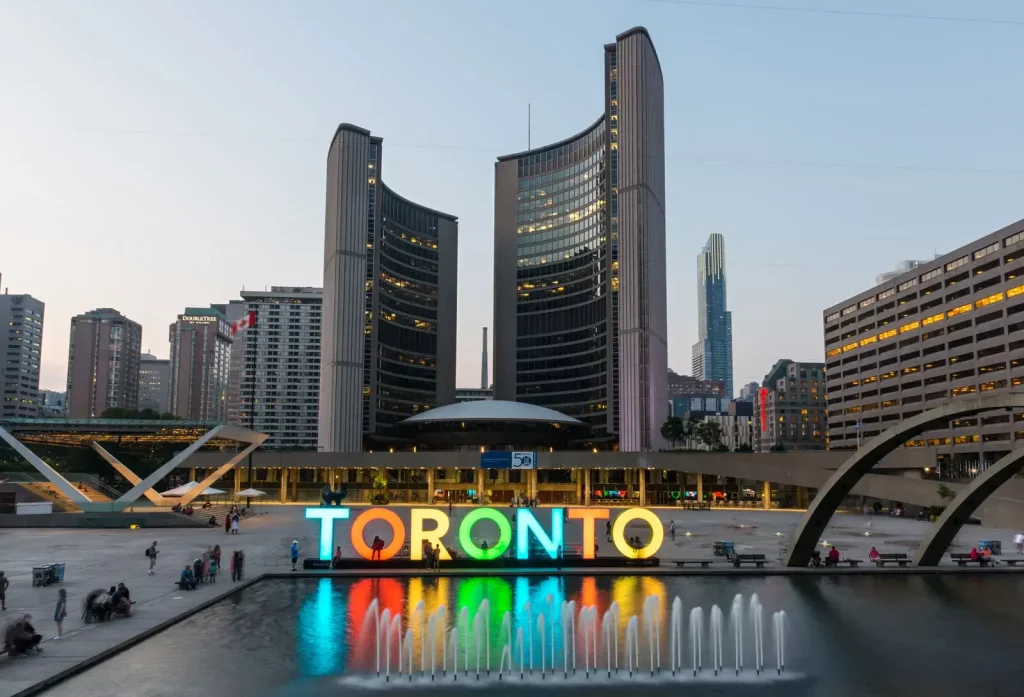Navigating the visa application process can often be a complex and daunting task, especially for those looking to travel from Nigeria to the United Kingdom. With various types of visas available and a multitude of requirements to fulfill, it’s essential to be well-informed to ensure a smooth and successful application process. This blog post aims to demystify the UK visa application procedure for Nigerians, offering a comprehensive guide that covers everything from eligibility criteria to essential tips for the visa interview. Whether you’re planning a short visit, a long-term stay, or looking to study or work in the UK, this guide will equip you with the necessary knowledge and tips to enhance your chances of a successful visa application.
Eligibility Criteria for UK Visa Applications from Nigeria
Applying for a UK visa from Nigeria requires meeting specific eligibility criteria set by the UK government. These criteria are designed to assess applicants’ intentions, their financial ability to support their stay, and their ties to Nigeria. Understanding these requirements is crucial for a successful application. Here, we outline the key eligibility factors that Nigerian applicants need to consider:
- Purpose of Visit: Clearly define the purpose of your trip, whether it’s for tourism, work, study, or joining family. The type of visa you apply for will depend on this purpose.
- Financial Stability: Applicants must demonstrate they have sufficient funds to cover their expenses during their stay in the UK. This includes accommodation, living costs, and return travel.
- Travel History: A clean travel history, especially to countries with strict immigration policies, can enhance your application. It indicates compliance with immigration laws and regulations.
- Ties to Nigeria: Evidence of strong ties to Nigeria, such as family, employment, or property, can be beneficial. It helps in assuring the visa officers that you are likely to return after your visit.
- Health and Character: Applicants must be in good health and may need to undergo a medical examination. Also, a clean criminal record is essential for visa approval.
- Previous Immigration History: If you have a history of visa refusals or overstaying visas in any country, it could negatively impact your application. Full disclosure and explanation of any such instances are necessary.
- English Language Proficiency: For certain visas, especially student and work visas, demonstrating proficiency in English is required.
Remember, these are general guidelines, and specific visa types may have additional requirements. In the next sections, we will delve deeper into different types of visas, application procedures, required documents, and more.
Types of UK Visas Available for Nigerians
The United Kingdom offers a range of visa options to cater to the different needs of Nigerian travelers. Understanding the types of visas available is crucial in selecting the one that best aligns with your travel purpose. Here’s an overview of the most common UK visa categories for Nigerian applicants:
- Standard Visitor Visa: Ideal for those traveling for tourism, visiting family or friends, or attending short business meetings. This visa typically allows a stay of up to 6 months.
- Tier 4 Student Visa: For individuals intending to study in the UK. Applicants must have a confirmed place at a UK educational institution and sufficient funds to support their stay.
- Tier 2 Work Visa: This is for professionals who have been offered employment in the UK. The employer must be a licensed sponsor, and the applicant must meet the job’s skill requirements.
- Tier 5 Temporary Worker Visa: For individuals who want to work in the UK on a temporary basis. There are different categories within this visa type, including charity workers, religious workers, and creative and sporting roles.
- Family Visas: For those looking to join a family member who is a resident or citizen of the UK. The specific requirements vary depending on the family relationship.
- Long-term Standard Visitor Visas: These are available for frequent travelers who need to visit the UK regularly over a longer period. They can be valid for 1, 2, 5, or 10 years but allow a stay of a maximum of 6 months per visit.
- Ancestry Visa: For Commonwealth citizens with a grandparent born in the UK, allowing them to live and work in the UK.
Each visa type has specific requirements and application processes. In the following sections, we will guide you through the application process, required documents, and tips for a successful application.
Step-by-Step Guide to Applying for a UK Visa from Nigeria
Applying for a UK visa involves a series of steps that need to be carefully followed to increase the chances of approval. Below is a comprehensive guide to help Nigerian applicants navigate the process:
- Determine the Correct Visa Type: Based on your travel purpose, choose the appropriate visa category. Refer to the previous section for a detailed overview of different visa types.
- Complete the Online Application Form: Visit the official UK Visa and Immigration website to fill out the visa application form. Ensure all information is accurate and corresponds with the details in your documents.
- Gather Required Documentation: Prepare all necessary documents, including a valid Nigerian passport, proof of financial stability, travel itinerary, and any additional documents relevant to your visa type.
- Pay the Visa Fee: The visa fee varies depending on the visa type and duration. Payment is typically made online during the application process.
- Schedule an Appointment: After submitting your application, book an appointment at a Visa Application Centre (VAC) in Nigeria. You will need to provide biometric information (fingerprints and photograph) at the VAC.
- Attend the Visa Interview (if required): Some applicants may be required to attend an interview. Be prepared to answer questions about your trip, financial status, and reasons for returning to Nigeria.
- Track Your Application: After the interview, you can track the status of your application online. Processing times can vary, so it’s advisable to apply well in advance of your planned travel date.
- Collect Your Passport: Once your visa is approved, you will receive notification to collect your passport from the VAC. Ensure to check your visa for any errors before leaving the VAC.
Remember, the key to a successful application is attention to detail and thorough preparation. In the next section, we will discuss the specific documents required for the UK visa application process.
Documents Required for UK Visa Application from Nigeria
A successful UK visa application requires submitting a range of documents to support your application. These documents are crucial in proving your eligibility and intent. Here’s a comprehensive list of the standard documents that Nigerian applicants should prepare:
- Valid Nigerian Passport: Your passport should have at least one blank page and be valid for the duration of your stay in the UK.
- Completed Visa Application Form: The form should be filled out accurately and printed.
- Visa Application Fee Receipt: Proof of payment for the visa application fee.
- Photograph: Recent passport-sized color photographs that meet the UK visa photo requirements.
- Proof of Financial Means: Bank statements, payslips, or other documents that show you have enough funds to support your stay in the UK.
- Travel Itinerary: Details of your travel plans, including dates, flight bookings, hotel reservations, and an itinerary of your activities.
- Employment or Study Evidence: If employed, provide a letter from your employer; if a student, provide evidence of enrollment.
- Invitation Letter (if applicable): If visiting family or friends, include a letter of invitation from them.
- Health Insurance: Proof of health insurance covering your stay in the UK.
- Previous Travel History: Copies of previous visas and stamps, if applicable, to demonstrate your travel history.
- Additional Documents: Depending on the visa type, additional documents such as proof of English proficiency, sponsorship details, or evidence of relationship to a UK resident may be required.
Ensure all documents are current, genuine, and neatly organized. In the next section, we will explore common mistakes to avoid in the UK visa application process.
Common Mistakes to Avoid in the UK Visa Application Process
Applying for a UK visa can be intricate, and even minor mistakes can lead to application rejection. Being aware of these common pitfalls can significantly enhance your chances of a successful visa application. Here are some of the most frequent errors to avoid:
- Incomplete or Incorrect Application: Ensure that every section of the visa application form is filled out correctly and completely. Inaccuracies or missing information can lead to delays or denial.
- Insufficient Documentation: Failing to provide all required documents, or providing outdated or irrelevant documents, can harm your application. Double-check the document list and ensure everything is current and applicable to your visa type.
- Lack of Financial Proof: Not showing adequate financial means to support your stay in the UK is a common reason for visa rejection. Provide clear evidence of your financial stability.
- Poor Presentation at the Interview: If an interview is required, present yourself professionally and be prepared to answer questions confidently and honestly. Your demeanor during the interview can have a significant impact.
- Inconsistent Information: Ensure that all the information provided in your application matches the details in your supporting documents. Inconsistencies can raise doubts about the authenticity of your application.
- Overstating Your Stay: Be realistic about the length of your stay. Overstating it can lead the authorities to suspect you might not return to Nigeria.
- Failing to Demonstrate Ties to Nigeria: Evidence of strong ties to Nigeria, such as family, employment, or property, assures the visa officers of your intent to return.
- Ignoring Previous Visa Refusals: If you have had visa applications refused in the past, address these instances openly and provide explanations or changes in circumstances.
By avoiding these common errors, you can improve the likelihood of a successful visa application. In the next section, we will provide tips for preparing for a UK visa interview.
Tips for a Successful UK Visa Interview
The visa interview is a pivotal part of the UK visa application process, especially for Nigerians. It’s an opportunity for the visa officers to verify the information in your application and assess your intentions. Here are essential tips to help you prepare for and succeed in your UK visa interview:
- Be Well-Prepared: Review your application and supporting documents thoroughly before the interview. Be ready to discuss and clarify any aspect of your application.
- Practice Common Interview Questions: Familiarize yourself with common visa interview questions and practice your responses. Questions will typically revolve around your travel plans, financial status, employment, and reasons for returning to Nigeria.
- Dress Professionally: First impressions matter. Dress in a manner that reflects seriousness and professionalism.
- Arrive Early: Plan to arrive at the interview venue ahead of time. This shows punctuality and respect for the process.
- Answer Honestly and Concisely: Respond to questions truthfully, clearly, and without unnecessary elaboration. Honesty is crucial in visa interviews.
- Show Confidence: Maintain a calm and confident demeanor. Nervousness can be misinterpreted as a sign of dishonesty.
- Provide Evidence If Needed: Be prepared to offer additional documentation or evidence to support your answers, such as employment letters, bank statements, or travel itineraries.
- Demonstrate Ties to Nigeria: Convey your strong ties to Nigeria that will ensure your return, such as family, employment, or educational commitments.
- Be Polite and Respectful: Always be courteous and respectful to the interview officer, regardless of the nature of the questions.
Remember, the visa interview is not just about what you say, but also about how you say it. Confidence, preparedness, and honesty are key.
Conclusion
Applying for a UK visa as a Nigerian can be a challenging but manageable process. By understanding the different types of visas, meeting the eligibility criteria, preparing the necessary documents, and following the application steps carefully, you can significantly increase your chances of success. Remember to avoid common mistakes and approach the visa interview with confidence and honesty.
This comprehensive guide has aimed to demystify the UK visa application process for Nigerians, providing you with the essential information and tips needed for a successful application. Keep in mind that each visa application is unique, and staying informed and prepared is key. We wish you the best of luck in your UK visa application journey!
Frequently Asked Questions (FAQs)
Q1: How long does it take to process a UK visa for Nigerians? A1: The processing time can vary, but typically it takes about 15 working days from the date of the appointment. However, this can vary depending on the type of visa and individual circumstances.
Q2: Can I extend my UK visa once in the UK? A2: Yes, in some cases, you can apply to extend your visa from within the UK. This depends on the visa type and your reasons for extension. Ensure to apply before your current visa expires.
Q3: Is it mandatory to have travel insurance for a UK visa application? A3: While not always mandatory, having travel insurance is highly recommended as it provides proof of your preparedness for unforeseen circumstances during your stay.
Q4: How much bank balance is required for a UK visa? A4: There is no specified amount, but you need to show you have sufficient funds to cover your expenses during your stay. This includes accommodation, travel, and living costs.
Q5: Can I work in the UK on a visitor visa? A5: No, you cannot work in the UK on a standard visitor visa. If you intend to work, you should apply for the appropriate work visa.
Q6: What should I do if my UK visa application is denied? A6: If your application is denied, you will receive a letter explaining the reasons. You can reapply, addressing the refusal reasons in your new application.
Q7: Do I need to submit my original documents with the application? A7: Yes, original documents are required when applying for a UK visa. Ensure they are well-organized and presented during your application.





